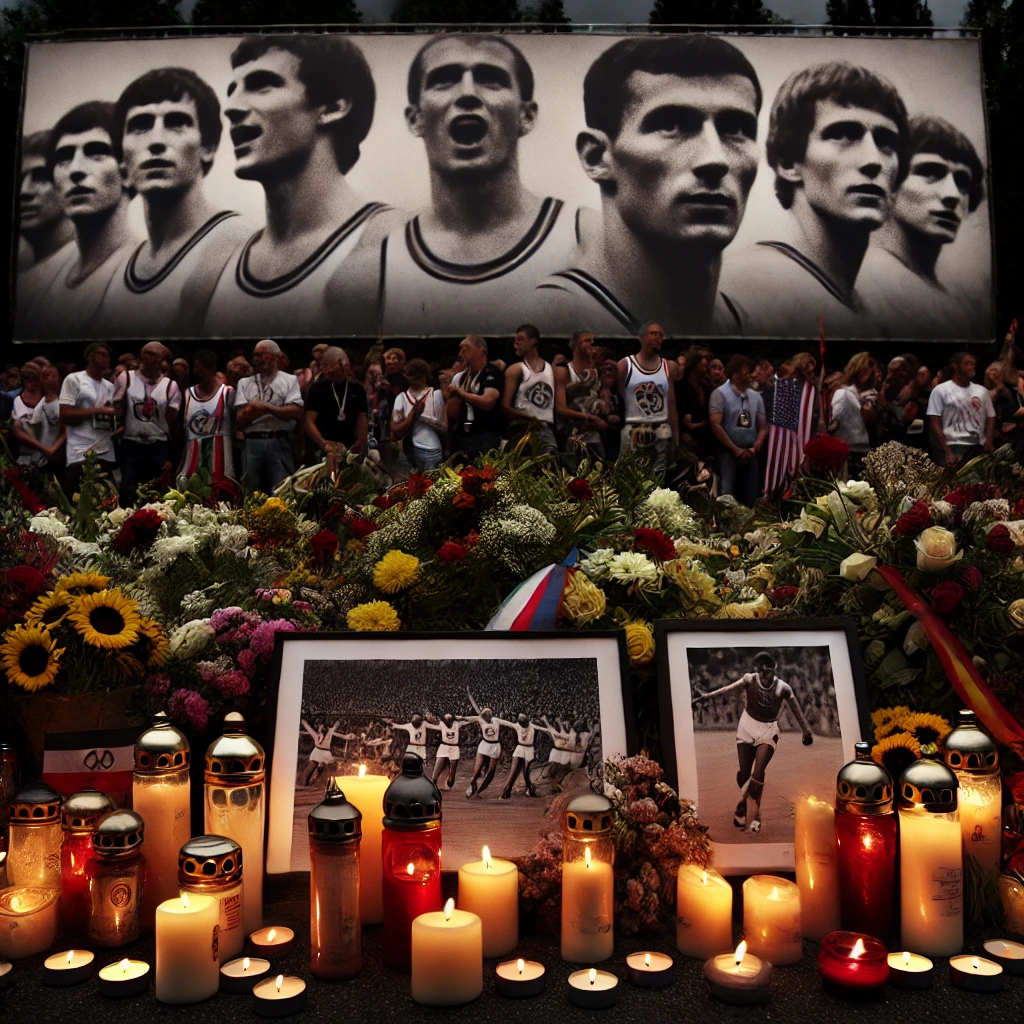On September 5, 1972, the Munich Olympics were marred by a tragic and shocking event: the kidnapping and murder of 11 Israeli athletes by the Palestinian terrorist group Black September. This attack, which took place during the Summer Olympics held in Munich, Germany, remains one of the most devastating acts of terrorism in the history of the Games and had profound implications for international security and the Olympic movement.

The Lead-Up to the Munich Massacre
The Munich Olympics, officially known as the Games of the XX Olympiad, were intended to be a symbol of peace and unity. However, the event was overshadowed by a violent act that shocked the world. On the morning of September 5, 1972, members of the Black September group, a Palestinian militant organization, broke into the Olympic Village. They targeted the Israeli athletes’ quarters, taking 11 members of the Israeli Olympic team hostage. This was part of a broader strategy to draw international attention to the Palestinian cause and to secure the release of Palestinian prisoners held in Israel.
The terrorists’ demands included the release of over 200 Palestinian prisoners, including some convicted of terrorism. The situation quickly escalated as the world watched in horror. Negotiations between the terrorists, the German authorities, and Israeli officials were intense, but they ultimately failed to secure a peaceful resolution.

The Assault and Aftermath
The standoff ended tragically when German authorities attempted a rescue operation. On September 6, a failed attempt to free the hostages resulted in a violent confrontation at a nearby airfield. The rescue operation ended in a gunfight, leading to the deaths of all 11 Israeli athletes, as well as five of the terrorists and one German police officer. The rescue mission was criticized for its lack of preparation and execution, highlighting significant security lapses.
The Munich Massacre had a profound impact on the Olympic Games and international politics. The Israeli government vowed to respond with a series of operations aimed at dismantling the Black September organization and other terrorist groups. The incident led to increased security measures at future Olympic Games and a heightened focus on counter-terrorism efforts globally. The event also brought international attention to the ongoing Israeli-Palestinian conflict and the challenges of addressing terrorism.

The Legacy of the Munich Massacre
The Munich Massacre remains a poignant and somber chapter in Olympic history. It highlighted the vulnerabilities of major international events to acts of terrorism and underscored the need for enhanced security protocols. The memory of the 11 Israeli athletes, who were killed in the line of their pursuit for sportsmanship and peace, continues to be honored through various memorials and tributes.
The impact of the Munich Massacre extends beyond the realm of sports; it has had lasting implications for global counter-terrorism strategies and international relations. The tragedy also sparked changes in how international events are secured and managed, emphasizing the need for vigilance and preparedness against such acts of violence. The legacy of the Munich Massacre serves as a reminder of the fragility of peace and the importance of international cooperation in combating terrorism and promoting security.
